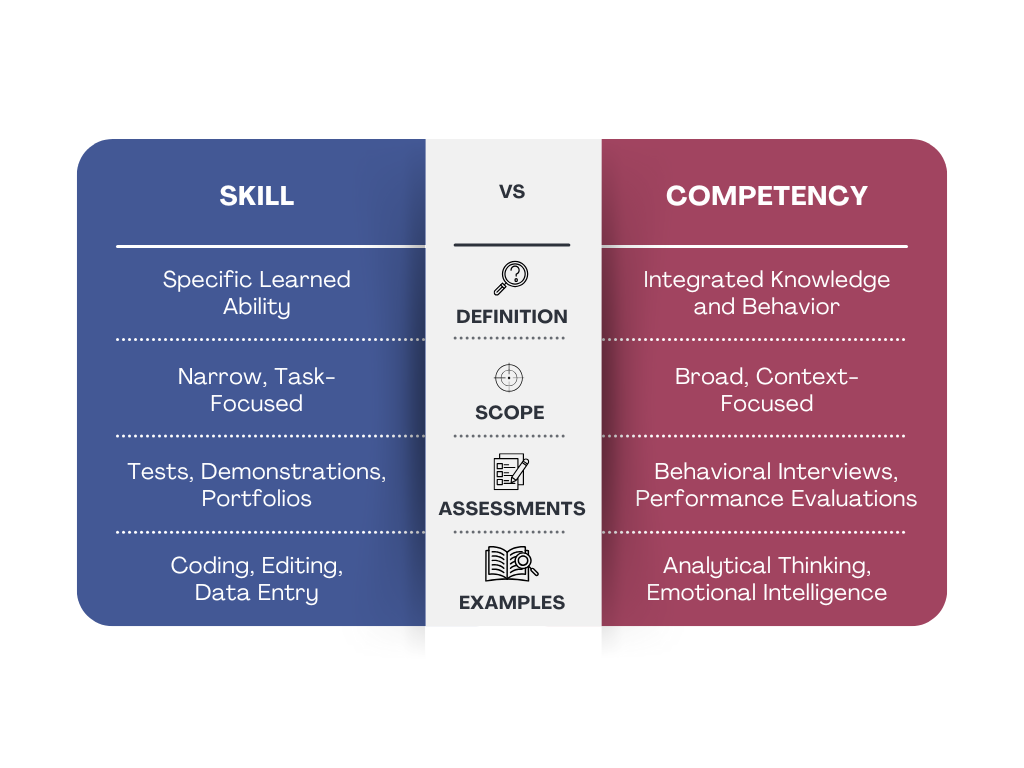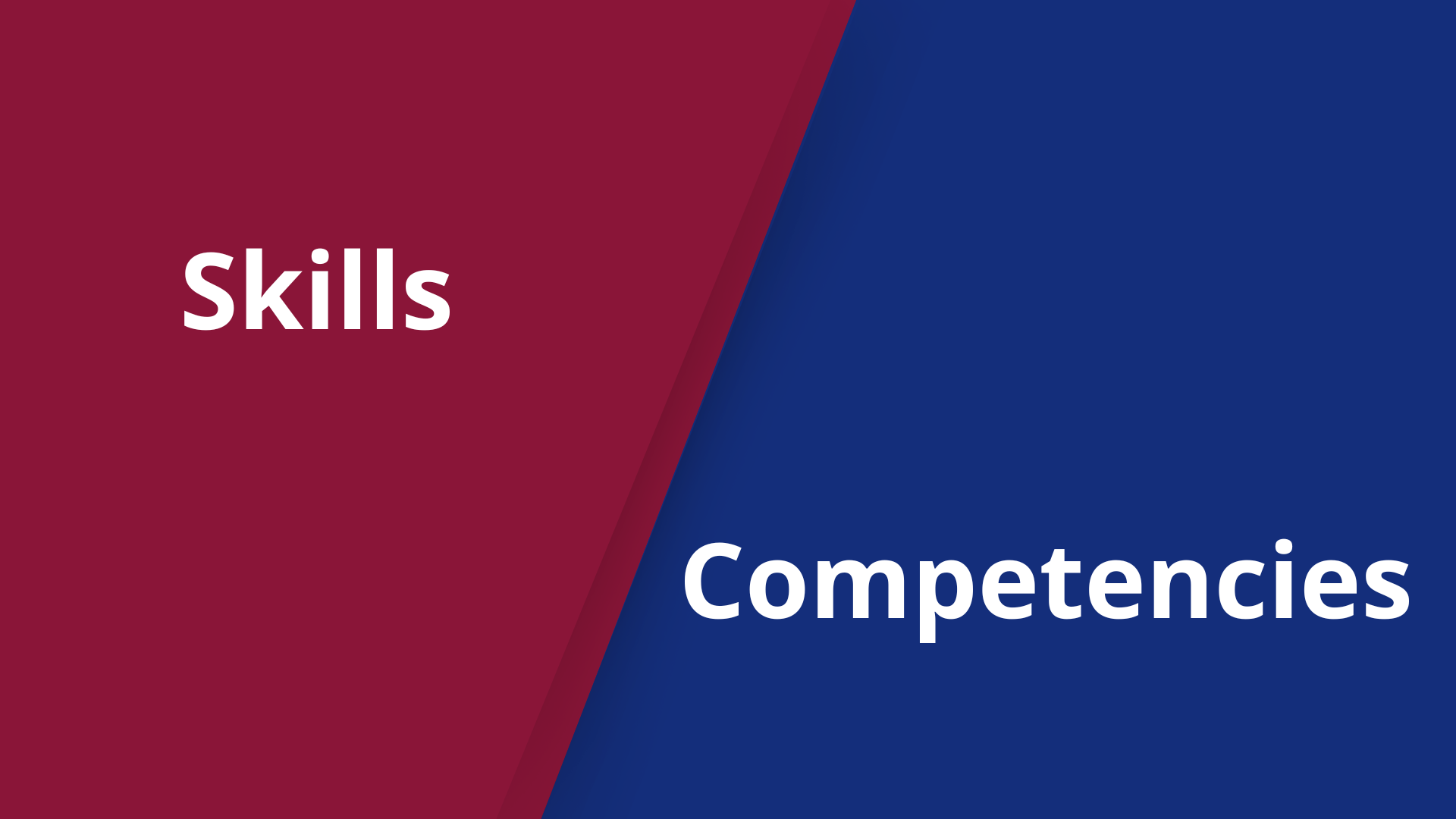Knowing the distinction can help you tap into your own potential and see potential in others.
Whether you’re hiring talent or navigating your own career path, you’ve probably seen the terms skills and competencies used interchangeably. But understanding the difference between the two can clarify job descriptions, strengthen interviews, and help you see potential in new ways, especially when thinking about how work or leadership experience might translate across sectors and industries.
So… What’s the Difference?
Skills are specific, teachable abilities. They are things you can do.
For example: writing a press release, using Excel, managing a project timeline. They’re task-oriented and often easy to list, demonstrate, or teach.
Competencies, on the other hand, are bigger-picture. They are how you apply what you know in a real-world scenario.
Competencies are the blend of skills, knowledge, behaviors, and judgment needed to effectively perform a job or role, like problem-solving under pressure or managing a team through change.
Here’s a simple analogy:
Skills are the tools. Competencies are how you use them.

For example:
- Skill: Conducting a one-on-one meeting
- Competency: Relationship management
Or:
- Skill: Building a digital marketing campaign
- Competency: Strategic communications and storytelling
Understanding this difference matters—especially when evaluating nontraditional candidates. A resume might not show a direct title match, but the competencies behind the experiences may align perfectly with your needs.
By reframing job requirements in terms of competencies, hiring teams can open the door to more diverse candidates with transferable skills and untapped potential.
About Lindauer
It takes talent to see what’s ahead and lead organizations forward. For three decades, Lindauer has partnered with mission-driven clients to turn transitional moments into transformational opportunities.
Learn more about Lindauer’s executive search and talent solutions.


